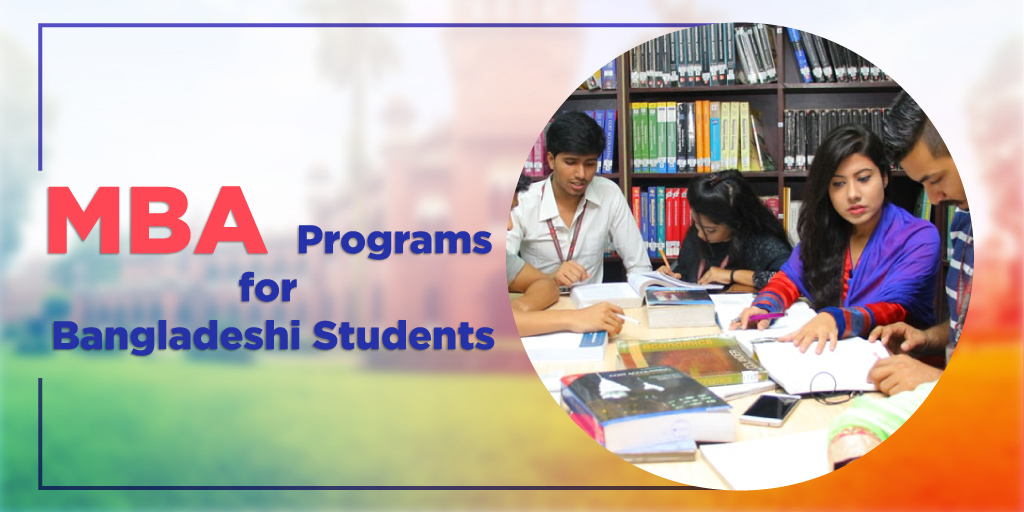
Word Count: 1688 |
Reading Time: 9 min |
Views: 1058
Introduction
Education is the cornerstone of human development as it enlightens the mind and thinking. An educated man observes the surroundings differently, gains insights into required aspects, secures a higher societal position, and achieves professional aspirations. But what kind of education is needed to ensure human development? The response must be in parallel with quality education. To receive quality education, students aspire to study abroad, as we are lagging in this regard. Many options are available to study abroad, and in this content, we will mention some top options for your higher studies. Let’s explore how to start a study abroad journey after HSC or A Level.Higher Education Options Abroad
Numerous universities and programs are available across the world to pursue higher studies. Mentioning below some prestigious universities from some top-wanted countries. You can navigate these universities for your desired programs and get insights into entry requirements. If you don’t meet the entry requirements, you can go with the foundation programs that will help you to meet the requirements.Universities of the UK
- University of Oxford
- University of Cambridge
- University of Edinburgh
- University of Sheffield
- University of Warwick
- Newcastle University
- University of Liverpool
- Cardiff University
- University of Aberdeen
- University of Surrey
- University of Dundee
- University of Kent
- University of Strathclyde
- Northumbria University
- University of Stirling
- Anglia Ruskin University (ARU)
- Edinburgh Napier University
- University of Bradford
- University of Greenwich
- University of Huddersfield
- Coventry University
- Liverpool John Moores University
- London Metropolitan University
- London South Bank University
- Ulster University
- University of Derby
- Birmingham City University
- University of Central Lancashire
- University of Roehampton
- University of Salford
- University of Westminster
- University of Wolverhampton
- Cardiff Metropolitan University
- University of Sunderland
- University of Chester
Universities from the USA
- Towson University
- University of Nebraska at Omaha
- James Madison University
- Lipscomb University
- University of Hartford
- DePaul University
- Florida Atlantic University
- Long Island University
- Texas A&M University-Corpus Christi
- California State University San Marcos
Australian Universities
- Monash University
- Griffith University
- Charles Sturt University
- University of Canberra
- University of Newcastle
- University of Technology Sydney (UTS)
- Curtin University
- University of Tasmania
- University of Sydney
- University of Melbourne
- Australian National University
- The University of Queensland
- University of Adelaide
Universities of Sweden
- Chalmers University of Technology
- Halmstad University
- Karlstad University
- Karolinska Institute
- Jonkoping University
- Kristianstad University
- KTH Royal Institute of Technology
- Linkoping University
- Linnaeus University
- Lund University
- Malmö University
- Stockholm University
- Umeå University
- University of Gothenburg
- Uppsala University
Universities of Malaysia
- Taylor’s University
- HELP University
- University Malaya
- SEGi University
- City University of Malaysia
- Al-Madina International University
- INTI International University
- Management and Science University
Finland
- University of Helsinki
- Aalto University
- LUT University
- University of Oulu
- University of Turku
- Tampere University
- University of Jyvaskyla
- University of Eastern Finland
- Abo Akademi University
Ireland
- Trinity College London
- University College London
- RCSI University of Medicine and Health Sciences
- Dublin City University
- University College Cork
- University of Galway
- Maynooth University
- University of Limerick
Foundation Programs and Pathways
A foundation program, foundation year, or foundation year program is a one-year preparatory course to a full multi-year degree curriculum offered by many universities in the Commonwealth and elsewhere. It is intended to provide incoming undergraduate students with the skills and experience to succeed at university. This education includes topics such as English language proficiency, presentation, article writing, teamwork, note-taking techniques, and time management. Completing these programs, you can start your university education.- Foundation year
- International foundation year
- Foundation year in Science
- Foundation year in Business
- Foundation year in Social Sciences
- International Foundation Year in Medicine
- Computing and Mathematics Foundation Year
- Foundation Year Humanities and Arts
- Foundation in Business
- International Year One in Law
- English Foundation Program
- Early Years Foundation Degree
- Internship Experience Program (IEP)
- Engineering Pathway
- Business Pathway
Vocational Education
Vocational education is designed to provide the knowledge, skills, and competencies specific to a specific occupation or trade or class of occupations. It may include work-based components. Mentioning below some areas for vocational education–- Agriculture, Environmental, and Animal Care
- Business and Administrative
- Catering and Hospitality
- Childcare and Education
- Construction
- Creative and Design
- Digital
- Hair and Beauty
- Engineering and Manufacturing
- Health and Science
- Legal, Finance, and Accounting
- Protective Services
- Sales, Marketing, and Procurement
- Social Care
- Transport and Logistics
- Social Studies and Media
- Personal Care and Fitness
Preparations for University Admission
Preparing for university admission abroad, a language proficiency test is a must for non-native speakers. For English-taught programs, IELTS and TOEFL remain as top-rated English language proficiency exams. There are also some specific tests for other language-taught programs.English Proficiency Tests
International English Language Testing System (IELTS) is an international standardized English language proficiency test for non-native English speakers. It is handled jointly by the British Council, IDP, and Cambridge English. The IELTS test has two modules: Academic and General Training. For university acceptance purposes, you have to sit for the Academic Test.Test of English as a Foreign Language (TOEFL) is a standardized test to measure the English language proficiency of non-native speakers wishing to enroll in English-speaking universities. TOEFL is known as one of the major English language tests, along with IELTS, Pearson Test of English (PTE), Duolingo English Test, and Cambridge Assessment English.SAT/ ACT for US University Admission
The SAT is a standardized test widely used for college admissions in the United States. This test is arranged to evaluate the applicant’s written, verbal, and mathematical skills. The exam is for 2 hours and 14 minutes, along with an additional 10-minute break. Each section is divided into 2 equal-length modules, and the first module of each section holds a broad mix of easy, medium, and hard questions. Following the performance on the first module, the second module questions will either be more difficult or less difficult.The ACT is an entrance exam used by most colleges and universities to make admissions decisions in the United States. It is a multiple-choice, pencil-and-paper test administered by ACT. It measures high school students’ readiness for college. The exam duration is 2 hours 55 minutes (plus 40 minutes if taking the ACT with writing). It contains four sections: English, Reading, Math, Science, and Writing (optional).Other Standardized Language Tests for Specific Countries
- Test of Proficiency in Korean (TOPIK)–South Korea
- Japanese Language Proficiency Test (JLPT)– Japan
- Test de Connaissance du Francais (TCF)– Franch
- Progetto Lingua Italiana Dante Alighieri (PLIDA)– Italy
- Test Deutsch als Fremdsprache (Test DaF)–Germany
- Diplomas de Espanol como Lengua Extranjera (DELE)– Spain
- Chinese Proficiency Test (HSK)– China
Career Guidance and Counseling
Preparing for university admission abroad, a language proficiency test is a must for non-native speakers. For English-taught programs, IELTS and TOEFL remain as top-rated English language proficiency exams. There are also some specific tests for other language-taught programs.1. Identifying Interests and Aptitudes
Identifying interests and aptitudes is an inflection point for your personal and professional life, as it defines your future flow. Uninteresting matters make people less focused, and it is hard to be successful in the long run. Therefore, you have to fix the areas you are interested in and hold a positive attitude towards them. You can identify the area with your previous experiences while studying various subjects.2. Exploring Career Options
After identifying the interested areas, explore the career opportunities in these fields. If you find your expected options, you can continue with them. On the other hand, if the expected options are not met, you can rethink. Try to find out a broader perspective of the option to have a clear understanding, including the ongoing demand, job responsibilities, and the financial compensation.3. Developing a Long-Term Educational and Career Plan
Planning is crucial for individuals, as well as for organizations. It can help to set appropriate goals, break problems into pieces, unfold weaknesses, heighten certainty and confidence, increase efficiency, reduce risks, and encourage creativity. So, you have to develop a long-term educational and career plan. Usually, a long-term plan means planning for more than five years. You can set the highest educational qualification that you want to achieve and what you want to gain through education. Find course options in colleges, universities, or other institutions.Financial Planning
Financial planning is concerned with your financial situation and building a specific financial plan to attain your goals. It can also be an estimation of cash needs and a decision on how to raise the cash, such as through own income, family support, or borrowing from others. It will help you to secure a smooth educational journey without any financial difficulties.1. Understanding Tuition Fees and Costs
Concentrating on financial issues, you explore the tuition fees and other relevant costs to continue your education. In Bangladesh, tuition fees and other educational costs are very reasonable, public universities offer very low tuition fees that most students can bear easily. While it applies to private universities, tuition fees are much higher. It varies from university to university, program to program. Tuition fees are significantly higher when planning to study abroad. So, you should explore the tuition fees and other costs to study at your chosen institute.2. Exploring Scholarship Opportunities
Multifarious funding options are available for international students if you plan to study abroad. They range from part-funding, which means paying a part of your tuition fees, to full funding that covers full tuition fees with living expenses and other costs. So, you can navigate the scholarship opportunities and apply for them if you fulfill the requirements.3. Budgeting and Financial Aid
A budget is a steer that takes you on the right track to reach your financial goals. It observes your financial spending and shows where you need to adjust. Budgeting involves challenging decision-making, but setting goals will make the tough choices a little easier. Financial Aid supports students to pay for their education, which covers things like tuition fees, room and board, books, and supplies. Financial aid could be grants, scholarships, loans, and work-study.Required documents
- Official Transcripts and Certificates
- Passport
- Proof of English Proficiency











